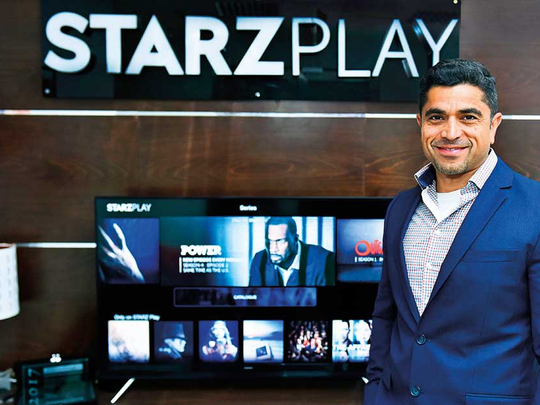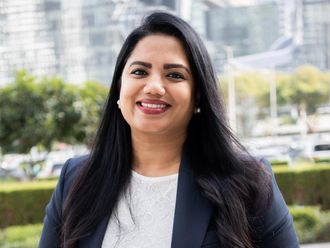
Dubai: For the Middle East’s video on demand subscribers, more of the latest movies are on the way. And even highly addictive TV shows.
This follows Starz Play, the VOD service provider beaming into the region, raising an additional $125 million in funding, which will be primarily used to boost its content library. “Looking to go in for more recent Bollywood and Urdu TV dramas, where we are not as strong as we would like to be,” said Maaz Shaikh, CEO. “The Bollywood movies are not only for the diaspora but for Arab nationals wanting to watch with subtitles.”
Currently, 70 per cent of the 6,500 hours of content Starz — and its subscribers — can call on represent Hollywood fare. This was boosted further in the last six months after tie-ups with the leading US studios Fox and Universal. When Starz launched in the Middle East in mid-2015 — the first overseas territory outside of the US — it had 3,500 hours of content.
This is why the new funds are especially timely. Netflix, which launched last year, has been building up subscriber muscle built around a host of popular shows such as “House of Cards” (now beaming its latest season), “Orange is the New Black” and the trending ’13 reasons Why”.
As against that, Starz can call on “Twin Peaks”, the new iteration of one of the most iconic TV shows (and created by David Lynch). Currently, within the region, Starz has got 700,000 subscribers, of whom “at any given pint, 350,000-400,000 are actively consuming the product during a month,” said Shaikh.
Shaikh insists that growth in subscriber numbers has not started to stabilise after Netflix’s entry. There is more competition on the way from the likes of iflix. “There is tremendous growth — I feel the gap in the market is not for old library content but to have (TV) shows at the same time as in the US.
“The older content gets, that demand is met by free-to-air broadcasters in the region. If some of the competition is selling subscriptions for older content at $3 a month, you need not get traction because those subscribers can see it on MBC, (which is free-to-air).
“The content that the regional audience is willing to pay for is premium and the latest.”
In May, Starz Play recorded a total of 95 million viewing sessions across the region, making it the 11th most visited website in Saudi Arabia and 25th in the UAE, according to a statement it issued Tuesday. The mobile app had been downloaded on to more than 1.6 million devices.
Starz is still deciding to best go about creating a library of popular Arabic titles. “The most consumed content remains Arabic, and only then Hollywood and Bollywood,” said Shaikh. “Now, the challenge for us is that the demand for Arabic content is filled by very strong free-to-air (channels).
“If we are going to enter, we need to carve out our own unique value proposition and that would convince audiences to pay Dh30 a month. That’s the answer we are searching for — what that unique proposition is. It will need a product that will stand out from the free-to-air.” (The current Arabic content in the Starz Play portfolio runs for about 1,000 hours.)
Starz pulls in Delta Partners as a new shareholder
Part of the $125 million raised came from UAE headquartered Delta Partners, a tech and media facing consultancy. Another to take was SEQ Capital of Sweden, which was involved in the earlier round as well. The regional operations of Starz now has had three rounds of funding since inception in June 2014.
Currently, Starz Play content can be accessed through its app or through local telecom operators. While the latter means having to enter revenue sharing deals with the telcos, Maaz Shaikh of Starz says it has its uses. “Our (subscriber) apps work well in marketplaces with high credit card penetration such as the UAE, but in markets where it is not the case, like Algeria, it’s best to bill through the telco.”










